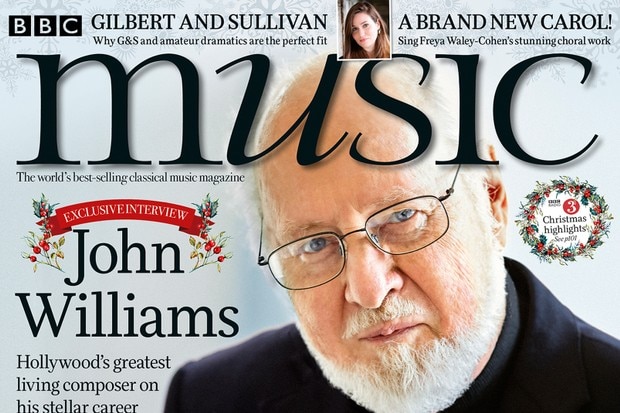Podcast: It’s cold out there for music magazines
UncategorizedOn our latest Slipped Disc podcast, Rainer Hersch comes up with the latest circulation figures for classical music magazines.
It’s a massive comedown. The two main magazines are struggling to stay in double-figure circulation (in thousands, that is).
So what can be done to save them/
Listen to the poddie, right here.






I value the free CD with BBC Music Magazine. This month features Georgy Sviridov’s “The Blizzard”, a composer and a work I had never heard of before.
However, the review section is getting thinner and websites such as Musicweb offer reviews free of charge.
I am not sure I have an answer to the conundrum.
Hard to believe BBC Music Magazine still has a covermount CD some 20 years after Gramophone stopped the practice.
Reviews are the problem. Features and previews should be the content, along with service articles and news. Reviewers are not usually good or great writers, and are not always well-qualified to review. The only good a review does is when it gives the artist a quote they can use. Negative remarks only drive audiences away and foster a negative atmosphere around music. And that is a huge part of the problem, along with undue snobbery.
If the BBC Music Mag. is going to keep regurgitating John Williams and G&S, then it’s hardly surprising. Since the number of relevant CD releases are way down, it’s also not surprising that the need for such magazines would wane. Of course, the music education theme – the lack thereof – has been pointed out as being the main culprit in the decline, numerous times. But let’s be clear about one counterpoint: classical music was a niche market long before Covid, and well before the realization of an older audience that’s not getting replaced. In addition, most anyone can get their music fix through Youtube and the numerous streaming services out there.
We’re just part of a dying world and ecosystem….CD gave it a last blast, but it’s gone too…..
A magazine is not at all the same thing as listening to or watching music videos. They are not really related at all. Imagine how hard it is to write about dance, and yet, there is a wonderful dance literature published. Why doesn’t classical music get the same quality of treatment? I think it’s a lack of talented editors, as well as writers.
With so much information out there, much of it for free, why subscribe to magazines like BBC Music anymore? I likely won’t continue with American Record Guide much longer. Musicweb-International is my choice for classical reviews. And who wants to pay for a mag that is 20% advertisements? The world is a changin’…magazines are going away and newspapers are struggling, too. It’s unfortunate for those of use who love the printed word, but this is what the internet has brought us.
For the curated CD.
Advertising is part of the fun of reading a magazine, and supporting the advertisers keeps the magazine going. You are not loving printed word nearly enough.
Sadly the day of print magazines is receding into history. Words and pictures can be more conveniently read online.
Specialist ones like Pianist Magazine which includes thirty plus pages of scores every time may continue but that’s a niche market.
We used to get milk in glass bottles delivered by horse and cart … bit I digress.
The horse might have digressed without a bit. 😉
But what if the internet breaks down?
I treasure my real library and record collection!
If the internet breaks down we would have bigger problems to worry about than being unable to listen to music.
In that case, having music available in hard copy might prove a vital consolation.
I enjoy BBB MM here in the states. Many interesting articles and will miss it if it goes under. If the number of CDs being issued is down, fine with me, there is no way I could buy even a tiny percent of them. I like the accompanying magazine CD, but never understood why they didn’t offer download. Also, you need both the CD and the magazine to id the performers.
It was a pre-internet thing, and now as others have said, there are ways for anyone to have their own blog. Nevertheless, there were reviewers of the older generation that I’ve kept the printed copies around, because their views are still valid in many cases, and access in the digital era – you never know. For the 78s community, it has gone to Facebook. You just have to join one of the groups – and ask whatever you want.
Let’s see: 1. mask obsessions, and show me your papers to attend concerts, 2. woke joke nonsense. Many patrons are tuning out to supporting classical music. Yes, it was a niche before corona, and Johnny Williams recycled articles are sad; however, the mask is off now. Reality is setting in on what classical is currently. It’s not pretty.
Get a life.
Masks were either mandated and epidemiologically necessary (they still are if somebody has the discourtesy of attending a concert while sick, which some are).
As for “woke”, what do you mean? To keep ignoring the existence of composers and performers that aren’t White males?
If we need people like you for classical music to grow I rather would prefer that it doesn’t.
Your woke agenda wrapped in troll attire is both tiresome and at the heart of the problem. The great music will thankfully survive in spite of your constant attempts to snuff it out.
I fail to see woke and mask connections to classical musics problems! The web and streaming are the major weaknesses
You only catch flack from USians when you’re over the target.
BBC Magazine: Make the CD a digital download (the whole thing), remove the article of the opinionated man that has been ranting since who knows when, organise the magazine as a set of pull outs (the biography, the reviews, the interview, any other seasonal coherent features) so one can keep what is individually relevant without needing scissors or a paper cutter, start partnerships with venues, orchestras, performers so one gets insightful articles and perhaps discounts to attend concerts if one is a subscriber or special one of subscriber concerts, or perhaps arrange to get a subscription to the magazine for people that become friends of cultural organisations.
Try something! They aren’t really trying, are they?
Publishers would have heaps of dosh if they would simply celebrate Elgar & RVW on the cover of every issue.
We have not had national-scale classical music magazines in the USA for decades. That, despite the existence of a potential readership in the millions. The content may be to blame. Musical America was just a pile of amateur reviews and music business content. All that’s needed is courageous, inspired publishers and editors. It may not be easy to find qualified writers, but they exist. It’s just part of the general attack on Western Civilization. And for all the wealthy people who “support” classical music, well, where are they?
Isn’t Fanfare a national-scale music magazine? (I happen not to read it because I lack the patience to learn the biases of its myriad reviewers, but it exists…)